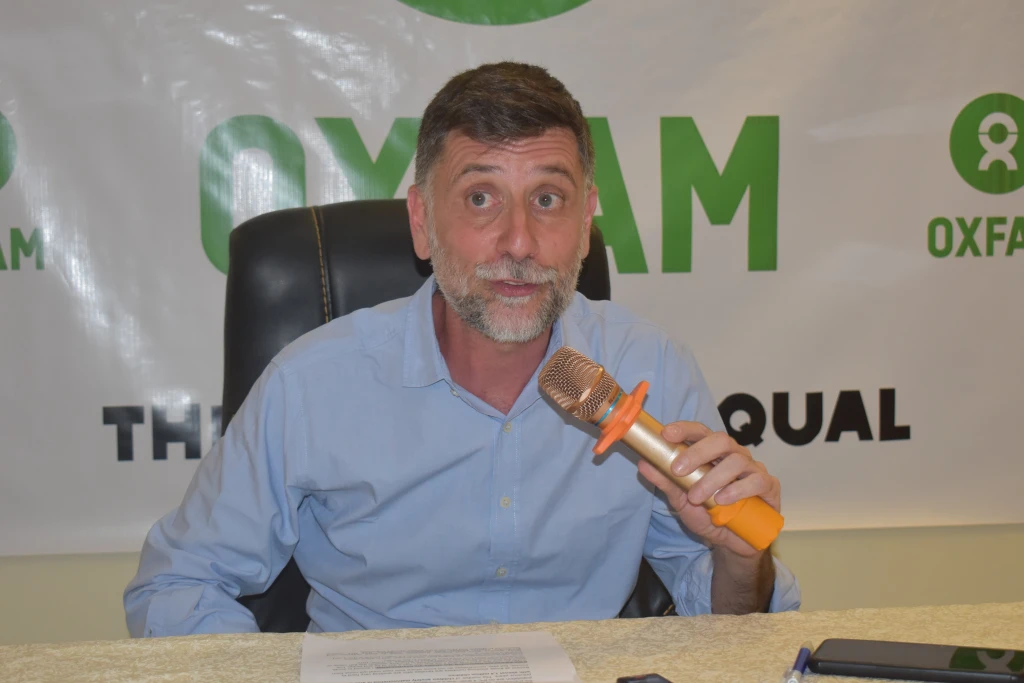
An international Aid agency called for immediate humanitarian intervention in Jonglei, Lakes, and Unity states. The worsening food situation in those areas is attributed to floods.
Executive Director of Oxfam International, Franc Cortada Hindersin, delivery of humanitarian assistance and more funding are critical to saving lives now and protecting people’s dignity, health, and wellbeing.
“We need to urgently scale up the operations to tackle the current hunger situation across the country, especially in flood-affected communities,” said Mr. Cortada.
Oxfam declared a category one hunger response in the countries its supports in East Africa, including South Sudan.
The agency cautions that it will take years for communities to recover from the cumulative effects of conflicts and floods, which will continue exposing them to displacement, hunger, and waterborne diseases.
Mr. Franc Hindersin, who concluded his one-week visit to their project sites in the country, has stated that those who are in the center of the suffering from hunger and displacement are women and children.
He says his organization has launched a fight against hunger in the Akobo, walgak, Pibor, Yirol, Lankien, pochala, waat, and Yuai areas of Jonglei and Lakes as priority locations.
According to The Integrated Food Security Phase Classification (IPC) released this year, 7 million people need humanitarian assistance.
Juliet Balikowa, the acting country director for Oxfam, appealed to the government at the national and state levels to provide security for humanitarian workers to deliver services to the people safely.
She regrets the target of the humanitarian workers by both warring parties and the civil population during conflicts.
“Aid conveys being targeted and ambushed, which is part of our appeal to the government. We need they are trying to make sure there is stability, but we need an increase in that area because we have remained targeted, and we know some have lost their lives and have remained a concern for us.”
Oxfam said it supports over 500,000 people with humanitarian assistance, including access to clean water, hygiene facilities, food, fuel, and income support.